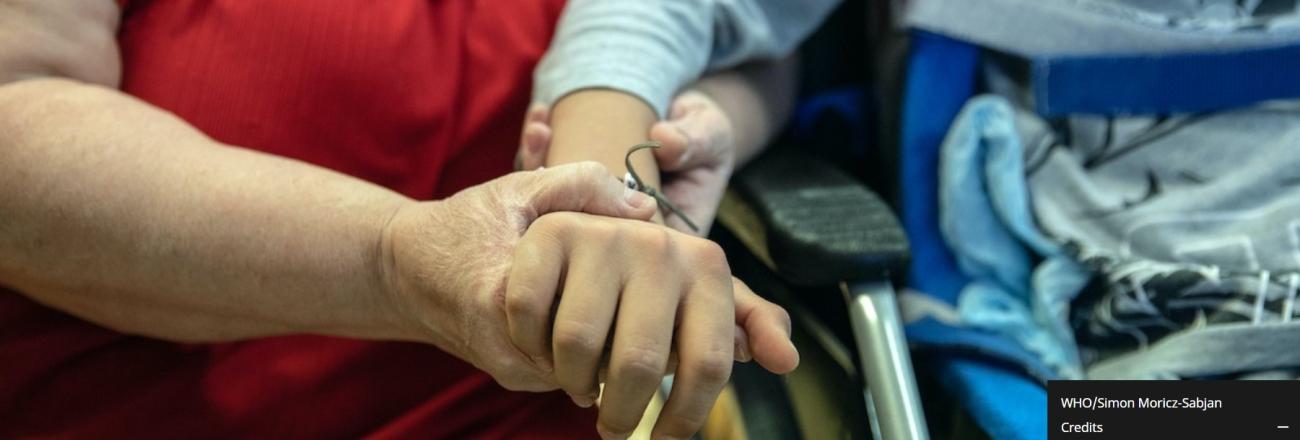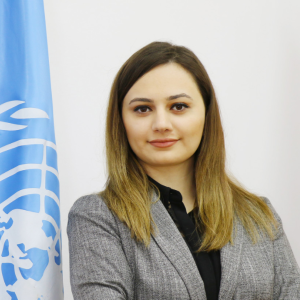WHO/Europe is actively supporting these efforts by the Ministry of Health and the Ministry of Labour and Social Protection of the Population.
Rehabilitation allows women, men and children of all ages to be as independent as possible in everyday activities, enabling participation in education, work, recreation, and meaningful life roles, such as taking care of family. Similarly, access to vital assistive technology (AT) can help people see and hear better, help people with intellectual and cognitive disabilities interact more effectively with others, and support people with psychosocial disabilities to manage and work through difficult times.
In Azerbaijan, the government has committed to strengthening and scaling up rehabilitation and AT services and is developing a comprehensive roadmap to do so. WHO/Europe is actively supporting these efforts by the Ministry of Health and the Ministry of Labour and Social Protection of the Population.
Supporting rehabilitation and AT efforts
In the last 2 years, with support from the United States Agency for International Development (USAID) and the Government of Norway, WHO has promoted several rehabilitation and AT activities in Azerbaijan, including a rapid-AT Assessment (r-ATA) household survey that collected information from 5597 respondents across 1156 households in 8 economic zones in Azerbaijan. The results of the r-ATA survey were extremely useful in providing key information about the demand for AT in the country.
On a global scale, WHO is implementing ambitious initiatives to strengthen rehabilitation in health systems and scale up access to AT products and services. The initiatives aim to improve people’s functioning, which in turn leads to greater participation and improved quality of life, especially for persons with disabilities or noncommunicable diseases, as well as healthy ageing.
Assessing rehabilitation and AT services in Azerbaijan
A team of WHO experts recently assessed the current state of rehabilitation and AT services in Azerbaijan using 2 WHO standardized tools: the Systematic Assessment of the Rehabilitation Situation (STARS) and the Assistive Technology Capacity Assessment (ATA-C). The team also provided technical assistance in integrating rehabilitation and AT into a national action plan.
Results from the assessment were shared with different government authorities, people who need access to vital rehabilitation and AT services, and groups of service providers. Their feedback has been collected and will feed into a list of recommendations that will help further develop the Government of Azerbaijan’s rehabilitation and AT strategy and, ultimately, the national roadmap for health.




